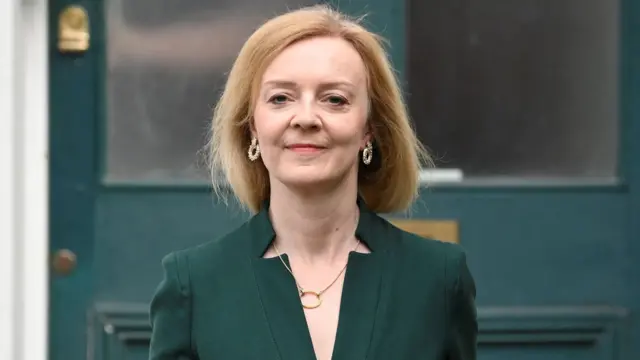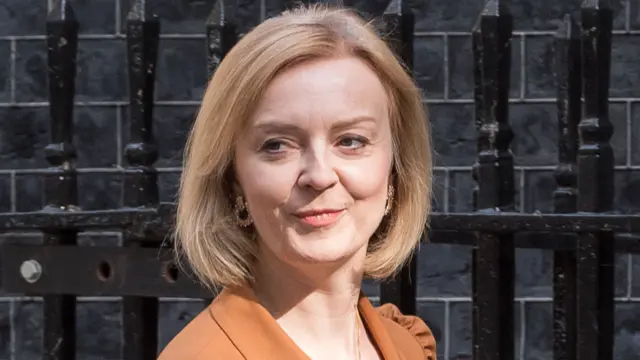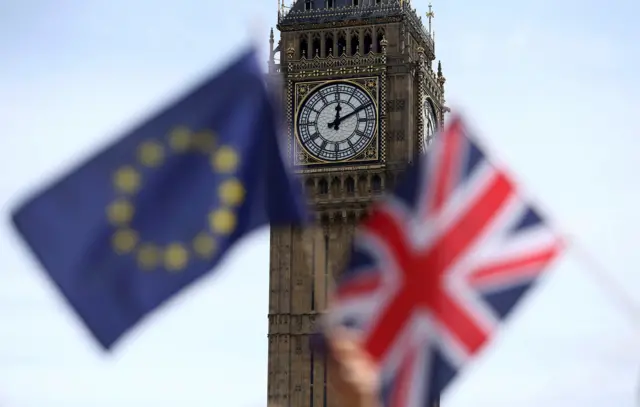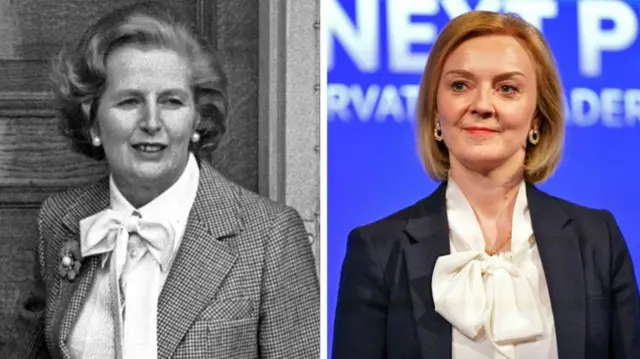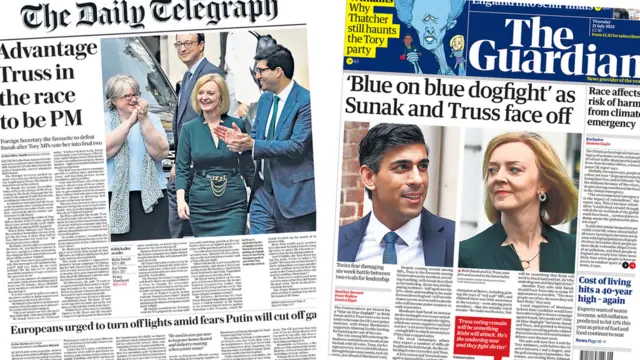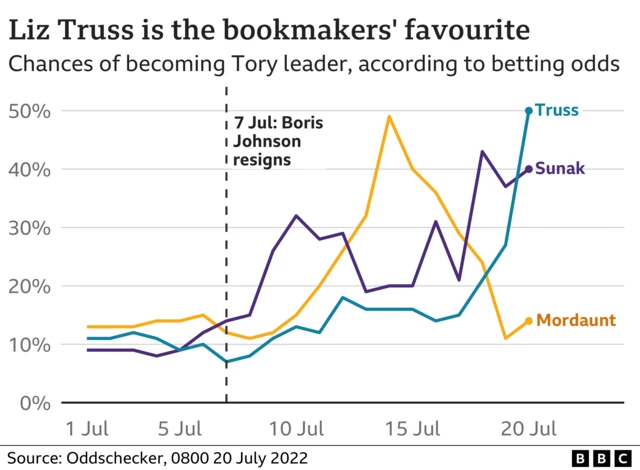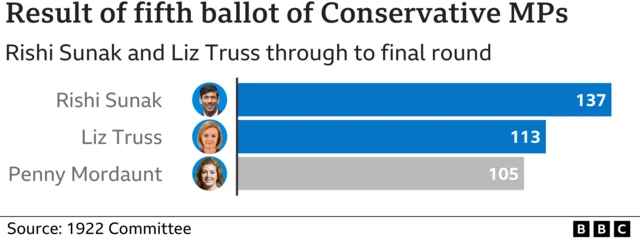
Sure-footed - but will economic and Brexit arguments work?published at 10:06 BST 21 July 2022
 Chris Mason
Chris Mason
Political editor
Liz Truss sounded sure-footed and confident on what she believes in her interview on the Today programme - in contrast with Rishi Sunak’s more hesitant and defensive performance in the same slot last week.
But her critics can and will point out the strength of her convictions now can be contrasted with the strength of rather different convictions in the past — notably on Brexit; she voted Remain in 2016.
But it's her economic convictions she’s determined to frame this contest around. And her analysis of government economic failure was broader this morning than it has been until now.
It was more than a critique of Rishi Sunak — there had been a failure over 20 years, she said, to deliver economic growth.
A few things jump out from this: the Conservatives have been in government for the last 12 of those years; Liz Truss has been in senior government jobs for the last eight.
She's previously criticised the cuts in public spending during David Cameron's time as prime minister.
So what would have been her approach then? More borrowing, as she advocates now? And where does she see the limit of borrowing? These questions matter as the overall coherence of her economic strategy is scrutinised.
Secondly, rooting her critique of the UK’s problems around sclerotic growth is precisely the analysis Keir Starmer is attempting to build too. It is the coming territory of political argument. Who will have the most convincing prospectus?
And a final word on Brexit. After all of the binary anger the rows about it have provoked, it says something about the maturing of the discussion that it is no longer purely about how someone voted six years ago.
Liz Truss - the Remainer turned born-again Brexiteer - has the endorsement of many of the self-appointed defenders of the faith.

